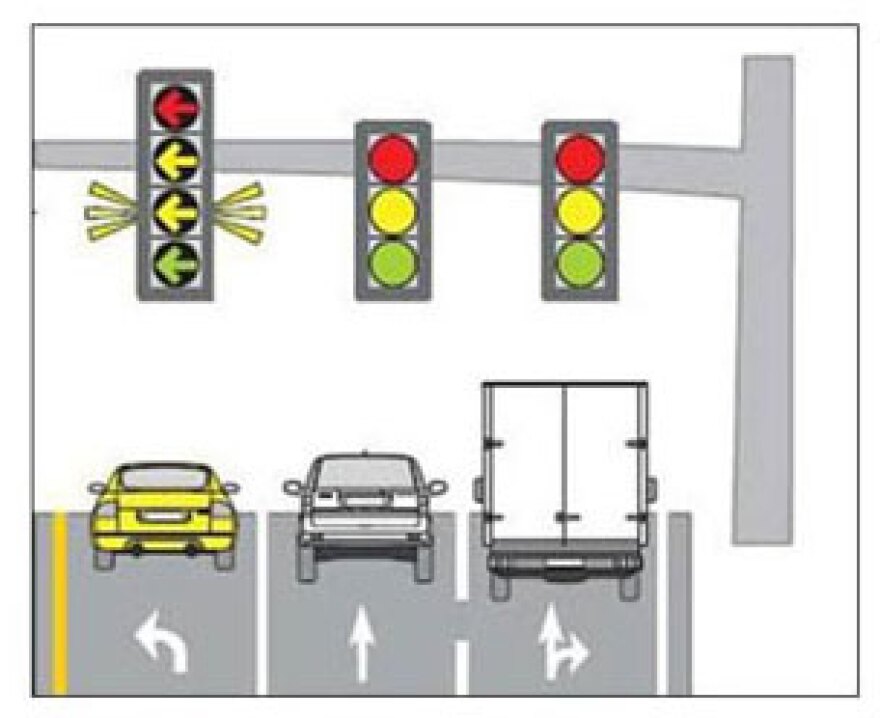Yellow lights are flashing in parts of Dubuque. This month, the city introduced a new left-turn traffic signal: a flashing yellow arrow.
The signal has red, green, and yellow arrows. There's a steady yellow arrow and a flashing one. A flashing yellow arrow means drivers are allowed to turn left, but they must yield to oncoming traffic, but a steady yellow arrow means the light is about to turn red.
Dave Ness, a city engineer, says the new signals will help prevent crashes because turning drivers will know who has the right of way.
"Sometimes people mistake that. They just see a green, and they don't see the sign on it that says 'Yield on green ball.' Most often, this is at the extreme ages. A new driver who just got their license or elderly folks will sometimes just see the green and just proceed on it."
Dubuque has installed the new signal at the downtown intersections of Ninth and Locust, and Ninth and White Streets. It plans to install at least 25 more over the next five years. Ness calls it a "common sense signal."
"You know that yellow means yield or caution, so if you have a flashing yellow, as a driver, it's kind of natural to know because you do sometimes have a green arrow to start with. And everybody knows that a green arrow is a protected movement, but instead of having a green ball, it's just a flashing yellow," he says.
The Federal Highway Administration adopted the flashing yellow arrow as a national standard for what it calls "permissive turning."
Ness says he's already seen it in other cities, including Coralville, Ames, and Iowa City. Some Galesburg intersections also feature the flashing yellow arrows.


